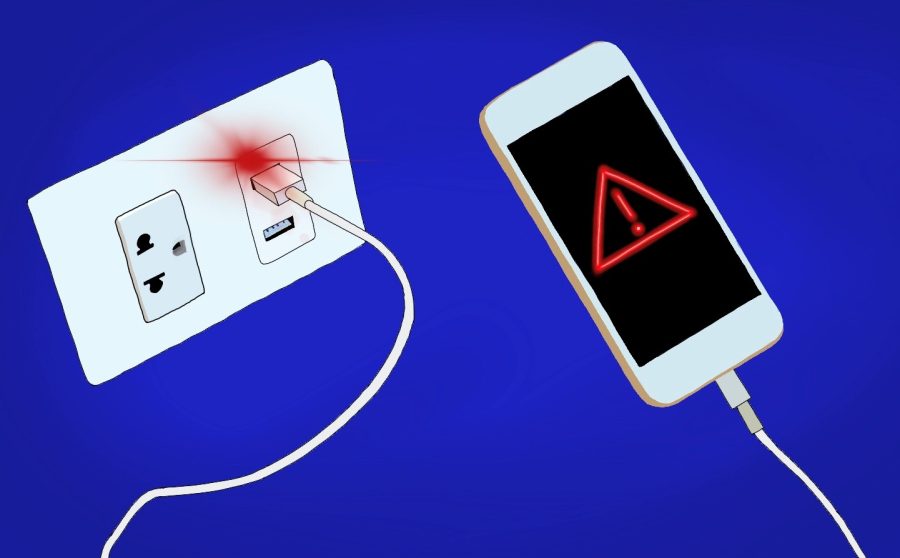Juice Jacking
iPhone battery running low? Think twice before plugging a device into a nearby public charging station. The FBI warns consumers against doing so due to the risk of “juice jacking,” which is when hackers load malware onto people’s charging devices through tampered USB ports or cables. This could be passwords, contacts, emails, credit card numbers, or any information on one’s phone.
What is frightening to the public about this type of hacking is that after the crime has been committed, the victim will not likely realize anything out of the ordinary has happened to his/her device since there is not any pop-up notification to tell them so, according to CBS. Lynbrook resident and Systems Engineer Joe Malinka said, “Juice jacking is a ‘silent’ attack. So it’s possible that juice jacking is more common, but it’s not reported because most people wouldn’t have any idea that it even happened to them until long after the event.” Additionally, someone’s phone will still charge while their data is being compromised, so there’s no sign of the charger being faulty or tampered with. Technology teacher Errol Dusman said, “If you absolutely must, inspect the charger for signs of being tampered with [or] check if the plug housing has been opened.”
Dallas Fort Worth (DFW) International Airport recommends that people check charging ports for signs of unusual activity, such as an unusual looking adapter. Other suggested solutions include purchasing a data blocker for USB cords, or simply bringing a personal portable charger to a public place. Malinka recommended the USB data blocker, “which allows your device to charge [while] it removes the data connections,” enabling “your device to charge safely without the possibility of ‘juice jacking.’”
Although cyber theft tactics have been an issue for a long time, “juice jacking” is a more alarming method since it does not require the victim to do anything wrong, such as opening a suspicious email or link, for the crime to occur. Junior Gianna Taverna commented, “It’s scary to know that your data is so easily accessible to hackers.” In fact, not only can the malware steal one’s data, but it can also install itself onto the device, copying the data back onto the hacker’s phone.
Besides suspicious USB wires, wireless charging ports are not safe to use either. According to the 9 News website (9news.com.au/), Dr. Mohiuddin Ahmed, senior lecturer in computing and security at Edith Cowan University in Australia, noted that wireless chargers are a risk when they are paired with public devices.
Some believe that law enforcement should take steps to prevent “juice jacking.” Dusman commented that law enforcement should consider conducting “inspections of charging areas, as well as possibly creating resources for tracing the origin of these devices when found.”
Although it seems fairly simple to protect yourself from the dangers of “juice jacking,” this threat is only one of many posed by hackers on a daily basis. Another scheme is called ATM or credit card skimming. Malinka commented that this threat “can drain victims’ bank accounts from an ATM that’s been tampered with.” This kind of payment fraud occurred 161,000 times in 2022 according to the Bankrate website (bankrate.com). To protect oneself against this, Dusman suggests that users “always inspect a card reader before inserting your credit card.”
Cyber threats can sound daunting when one is not educated on the topic. If people would educate themselves on the dangers of these threats, many instances of attack could be prevented.

Hi, my name is Eliza Fucci, and I’m a member of the Class of 2024. I am also a part of GirlUp, S.T.A.R.T., S.K.I.P., and NHD club. In my free time, I...






















